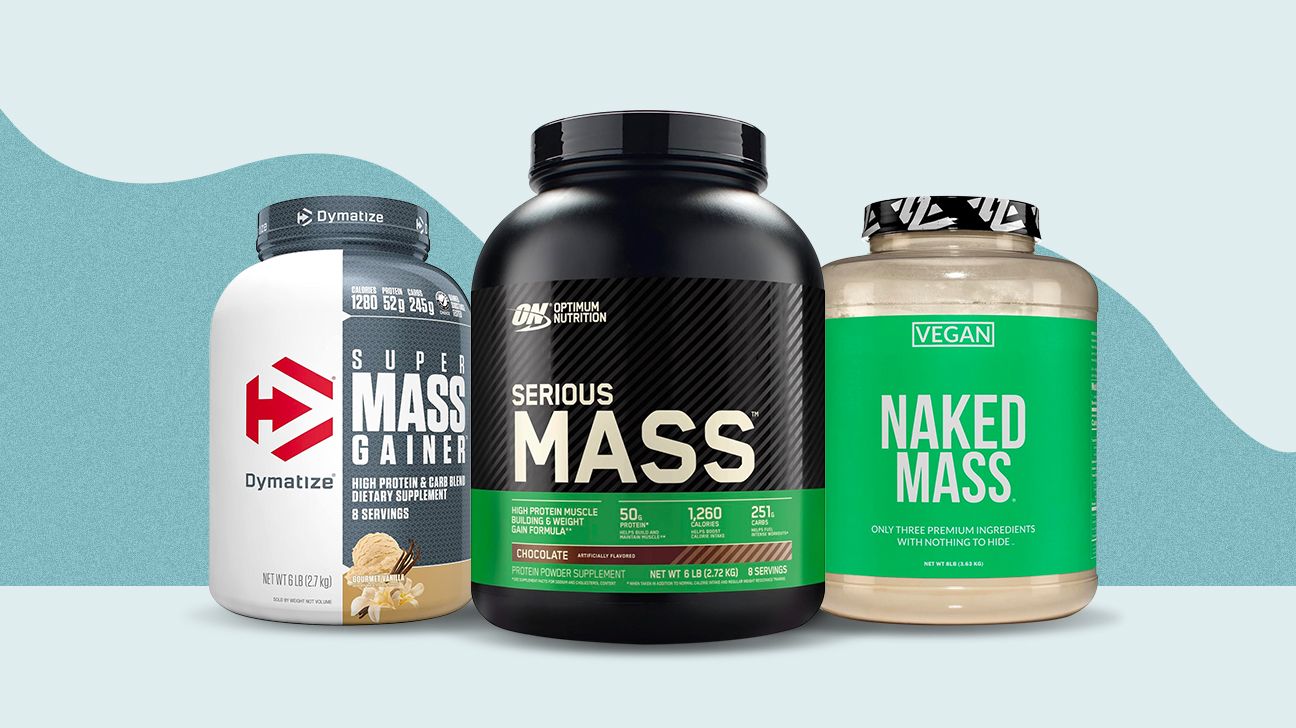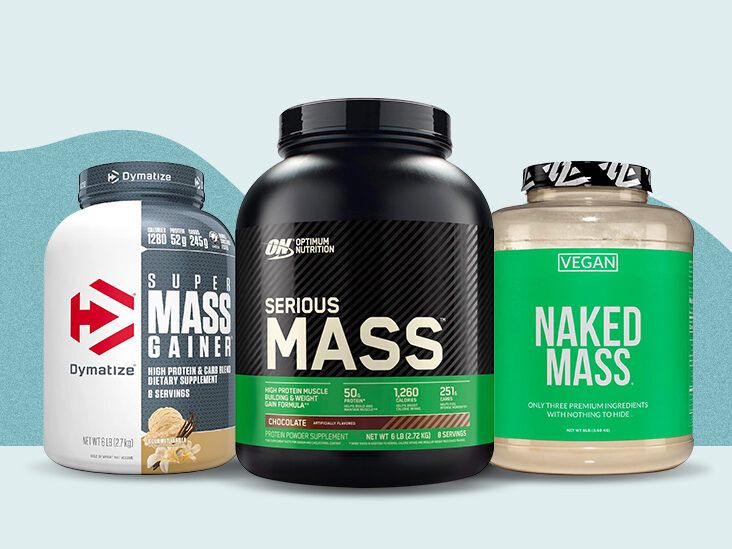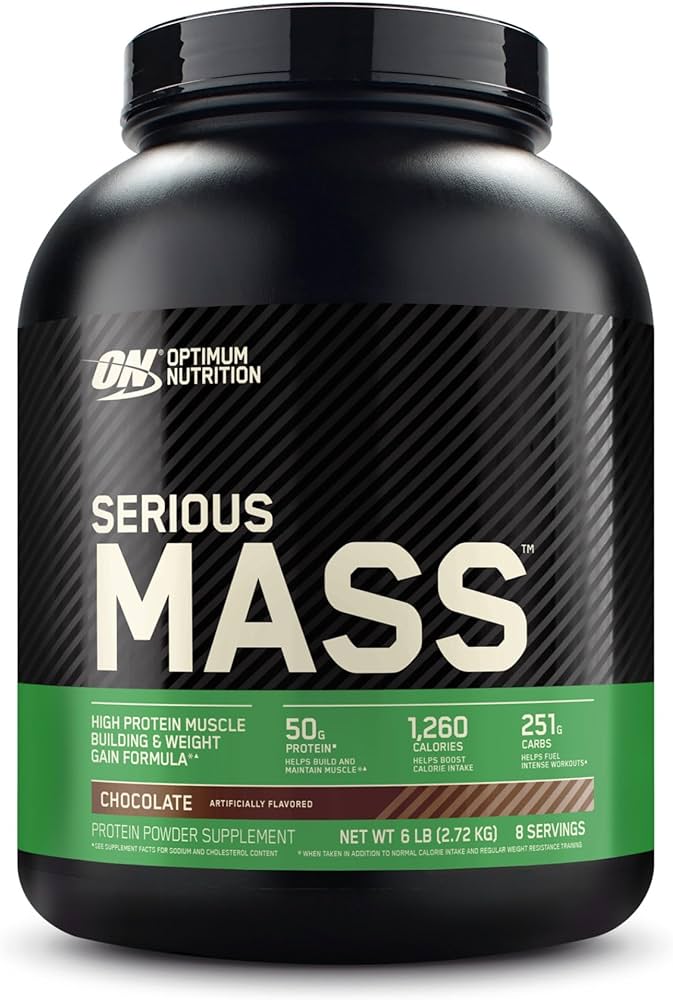Protein shakes can help with weight gain by providing easily consumable calories. They are commonly used for bulking and gaining weight.
However, it’s important to note that protein powder alone will not make you gain weight. Weight gain occurs when you consume more calories than you burn. Overconsumption of protein powder and other additives may result in a caloric surplus, which can lead to weight gain.

Understanding Protein Powder For Weight Gain
Protein powder is a popular supplement for those looking to build muscle, but did you know it can also be an effective tool for weight gain? This section will explore protein powder, how it helps with weight gain, and whether protein shakes are good for weight gain.
What Is Protein Powder?
Protein powder is a dietary supplement that contains concentrated sources of protein. It is typically made from various sources, such as whey, soy, or casein. These powders are available in different flavors and can be mixed with water, milk, or other liquids to create a protein shake.
How Does Protein Powder Help With Weight Gain?
Protein powder can help with weight gain in several ways.
- Increased calorie intake: Protein powder is often used as a meal replacement or added to meals and snacks to increase calorie consumption, which is essential for weight gain.
- Muscle building: Protein is an essential nutrient for muscle growth, and consuming protein powder can stimulate muscle protein synthesis, increasing muscle mass.
- Appetite suppression: Protein is known to be more satiating than carbohydrates or fats, which can help control appetite and prevent overeating.
- Convenience: Protein powder is easy to prepare and consume, making it a convenient option for those looking to increase their protein intake.
Are protein shakes good for weight gain?
Protein shakes can be a beneficial tool for weight gain when used appropriately. However, it’s important to note that consuming protein shakes alone will not automatically lead to weight gain. Maintaining a well-balanced diet and incorporating protein shakes as part of a comprehensive weight-gain plan is crucial.
Additionally, protein shakes should not replace whole foods entirely. While protein powder can be a convenient and effective supplement, it’s crucial to prioritize whole-food protein sources and other essential nutrients for optimal health.
When choosing a protein powder for weight gain, consider factors such as the protein source, taste preferences, and dietary restrictions or allergies. Consulting with a healthcare professional or registered dietitian can also help determine the best protein powder for individual needs and goals.
Choosing The Best Protein Powder For Weight Gain
When gaining weight, protein powder can be a valuable tool to support muscle growth and recovery. However, with so many options on the market, choosing the best protein powder for weight gain can be overwhelming. This article will discuss the factors to consider when selecting a protein powder, compare popular options, and provide the pros and cons of different protein powders.
Factors To Consider When Choosing Protein Powder
When selecting a protein powder for weight gain, several factors should be taken into consideration:
- Protein content: Look for a powder with a high protein content per serving, ideally around 20–30 grams.
- Source of protein: Consider whether you prefer whey, plant-based protein, or a blend of different protein sources.
- Additional ingredients: Check for added sugars, artificial sweeteners, and fillers that may not align with your nutritional goals.
- Digestibility: Ensure the protein powder is easily digestible to avoid discomfort or digestive issues.
- Taste and consistency: Opt for a protein powder you enjoy consuming to make it easier to incorporate into your daily routine.
Comparison Of Popular Protein Powders For Weight Gain
Here is a comparison of popular protein powders for weight gain:
| Protein Powder | Price | Benefits |
|---|---|---|
| Gainful Whey Protein Powder | $17.99 | It tastes great and doesn’t make me feel bloated afterward |
| Body Fortress Super Advanced Whey Protein Powder | $22.98 | Supports muscle growth and is effective for muscle building |
| GNC Pro Performance Weight Gainer | $29.99 | Excellent bioavailability, hard-hitting mass gainer |
| Optimum Nutrition: Serious Mass | $30.99 | High in protein and superior ingredients for your mass-gaining needs |
| Orgain Organic Protein Plant-Based Powder | $19.99 | Protein tastes delicious, leaving a chalky aftertaste |
Pros And Cons Of Different Protein Powders
Here are the pros and cons of different protein powders:
Gainful Whey Protein Powder:
- Pros: Tastes great; doesn’t make me feel bloated afterward
- Cons: None reported
Body Fortress Super Advanced Whey Protein Powder:
- Pros: Supports muscle growth; effective for muscle building
- Cons: None reported
GNC Pro Performance Weight Gainer:
- Pros: Excellent bioavailability, hard-hitting mass gainer
- Cons: None reported
Optimum Nutrition: Serious Mass:
- Pros: High in protein, great ingredients for your mass-gaining needs
- Cons: None reported
Orgain Organic Protein Plant-Based Powder:
- Pros: Protein tastes delicious, leaving a chalky aftertaste
- Cons: None reported
Tips For Using Protein Powder For Weight Gain
Using protein powder for weight gain can be an effective strategy for increasing muscle mass and overall body weight. Protein powder supplements are a convenient way to ensure enough protein in your diet, which is essential for muscle growth and repair. In this article, we will provide valuable tips on how to incorporate protein powder into your diet, the recommended dosage and timing, and other strategies for healthy weight gain.
How To Incorporate Protein Powder Into Your Diet
When it comes to incorporating protein powder into your diet, you can do so in various ways. Here are some simple and effective methods:
- Protein shakes: One of the most common ways to consume protein powder is by blending it into a delicious and nutritious shake. Mix a scoop of protein powder with your choice of liquid (water, milk, or plant-based milk) and add some fruits, vegetables, or other ingredients to create a satisfying and filling shake.
- Smoothies: Adding protein powder to your favorite smoothie recipe is another excellent way to incorporate it. Blend some fruits, vegetables, yogurt, and a scoop of protein powder for a nutrient-packed, protein-rich snack or meal replacement.
- Baking: Protein powder can also be used as an ingredient in baked goods such as muffins, pancakes, and protein bars. Adding protein powder to your recipes can increase the protein content and make them more satiating.
- Cooking: Additionally, protein powder can be mixed into various dishes, such as oatmeal, soups, and casseroles, to boost their protein content. This is a simple way to add extra protein to your meals without altering the taste too much.
Recommended Dosage And Timing
The recommended protein powder dosage for weight gain can vary depending on factors such as weight, activity level, and goals. Generally, consuming 0.8 to 1 gram of protein per pound of body weight is recommended. For example, if you weigh 150 pounds, you should aim to consume 120 to 150 grams of protein per day.
As for the timing of protein powder consumption, it is best to spread your intake throughout the day. Consuming protein before and after workouts can benefit muscle recovery and growth. Additionally, incorporating protein into your meals and snacks can help keep you fuller for longer and promote healthy weight gain.
Other Strategies For Healthy Weight Gain
While protein powder can be a valuable addition to your diet for weight gain, there are other strategies you can implement to promote healthy weight gain. Here are some additional tips:
- Eat calorie-dense foods: Include foods that are high in calories but also provide essential nutrients. Examples include avocados, nuts, nut butter, olive oil, and full-fat dairy products.
- Increase meal frequency: Instead of having three large meals, spread your calorie intake throughout the day by having smaller, more frequent meals and snacks.
- Strength training: Incorporate regular strength training exercises into your fitness routine to build muscle mass and promote healthy weight gain.
- Stay hydrated: Drinking enough water is crucial for overall health and digestion. Ensure you are staying hydrated throughout the day to support optimal weight gain.
Implementing these strategies and using protein powder as a supplement can effectively support your weight-gain goals and promote muscle growth and development.


Frequently Asked Questions For Protein Powder For Weight Gain
What Protein Powder Is Best For Weight Gain?
Protein shakes are great for weight gain. They provide easy-to-consume calories to help you bulk up. Many options are available, such as Gainful Whey Protein Powder, Body Fortress Super Advanced Whey Protein Powder, and Optimum Nutrition Serious Mass. Remember, protein powder alone won’t make you gain weight; consuming more calories is essential.
Is It Ok To Drink Protein To Gain Weight?
Protein shakes can help you gain weight by providing easy-to-consume calories. However, consuming protein powder alone won’t make you gain weight. Weight gain happens when you consume more calories than you burn. Be cautious of overconsumption, which may lead to a caloric surplus and bloating.
Can Protein Powder Increase Weight?
Protein powder itself doesn’t cause weight gain. Weight gain occurs when you consume more calories than you burn. However, consuming excess protein powder may lead to a caloric surplus and potential weight gain. Bloating is also a possible side effect.
How Can A Skinny Person Gain Weight?
Protein shakes can help skinny individuals gain weight by providing easy-to-consume calories. It is essential to consume more calories than you burn to gain weight. However, protein powder alone won’t make you gain weight. It may lead to weight gain, along with other additives, if consumed excessively.
Conclusion
Protein powder can be a valuable tool for weight gain when used correctly. It provides an easy and convenient way to increase calorie intake, especially for those who struggle to consume enough through whole foods alone. However, it’s important to remember that protein powder is not a magic solution.
Weight gain ultimately comes down to consuming more calories than you burn. Additionally, it’s essential to choose a high-quality protein powder that suits your specific dietary needs and preferences. With the right approach, protein powder can be an effective tool in your weight-gain journey.

